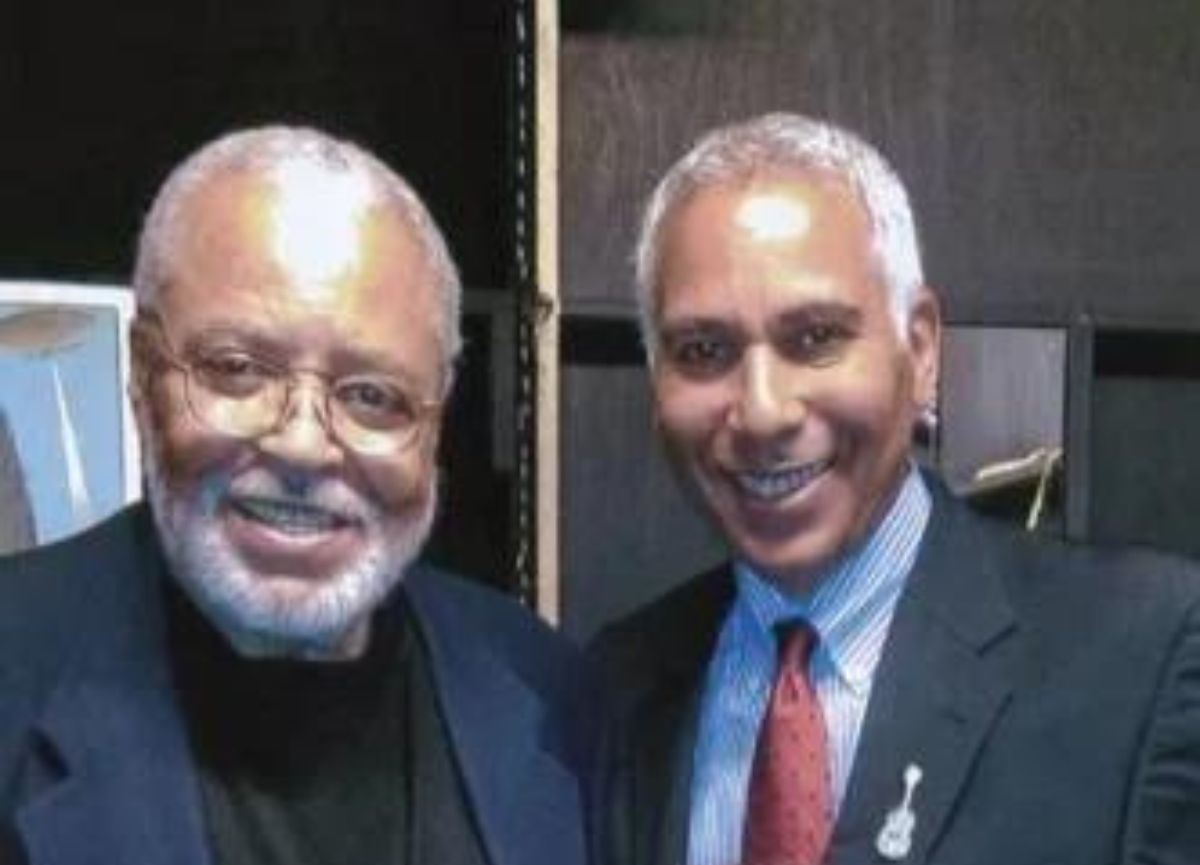Exploring The Concept Of Earl Jones Net Worth: Noble Titles And Sudden Windfalls
Have you ever stopped to wonder about the financial standing of someone with a distinguished name, perhaps like "Earl Jones"? It's a rather intriguing thought, isn't it? The very idea of someone's wealth often sparks a bit of curiosity, and when a name carries a certain historical weight or a touch of fictional charm, that interest can grow even more. So, it's almost natural to consider what "earl jones net worth" might actually mean, whether we're talking about a real person, a historical figure, or even a character from a story.
The word "Earl" itself, you know, has deep roots. It comes from the Old English word "eorl," which means something like "warrior" or "nobleman." This title is, as a matter of fact, the oldest and was once the highest rank among English nobles, before the creation of the Duke title in 1337. Earls typically held land, often called an earldom, and their position in the British peerage system — ranking below a marquess but above a viscount — certainly suggested a significant level of influence and, quite frankly, wealth.
But then, there's another kind of "Earl" that comes to mind when we think about money, especially unexpected money. We're talking about a character, a "ne'er do well" who, in a rather amusing turn of events, wins a tidy sum of $100,000 in the lottery and decides, very simply, to right all the wrongs he's done. This story, created by Gregory Thomas Garcia and starring Jason Lee, Ethan Suplee, Jaime Pressly, and Nadine Velazquez, shows a totally different path to a kind of "net worth," one that's about a sudden windfall rather than generations of noble land holdings.
Table of Contents
The Historical "Earl": A Look at Noble Wealth
The Peerage System: Ranks and Riches
Defining "Earl": More Than Just a Name
A Different Kind of "Earl" and Their Net Worth: The Lottery Winner
What Shapes "Net Worth" Today?
Frequently Asked Questions About "Earl" and Wealth
The Historical "Earl": A Look at Noble Wealth
When we think about the concept of "earl jones net worth," it's interesting to consider the historical context of the title "Earl." An earl, as we know, was a member of the British peerage, a very high social rank indeed. This position, you see, was deeply tied to land ownership and influence. An earl typically held an earldom, which was a significant piece of land, and this land was the foundation of their wealth and power. It wasn't just about cash in a bank, but about agricultural output, rents from tenants, and control over resources.
So, a historical "Earl" had a net worth that was more or less tied to their estates, their standing, and their ability to command resources. They were, in some respects, the economic powerhouses of their regions. The title itself, as the oldest and once highest in the English nobility, certainly suggested a person of considerable means. Their wealth wasn't just personal; it was also tied to their lineage and their responsibilities within the kingdom. It's quite a different picture from what we might think of as "net worth" in our modern times.
The word "earl," as a matter of fact, comes from the Old English word "eorl," which means warrior or nobleman. This suggests a history where power and land went hand-in-hand, where a noble's worth was measured not just by their personal possessions but by the extent of their influence and the productivity of their lands. They might also hold other titles, such as baron or viscount, further cementing their status and, arguably, their overall financial standing.
The Peerage System: Ranks and Riches
To truly appreciate the historical "earl jones net worth," we have to understand where the "Earl" fits within the broader British peerage system. This noble hierarchy, you know, has five main ranks today. According to Debrett's, a leading source on British titles, these are Duke, Marquess, Earl, Viscount, and Baron. The Earl ranks below a Marquess and above a Viscount, which means they are very high up indeed in this established structure.
The title of Earl, as previously mentioned, is the oldest in this peerage system. It dates back a long way, and for a time after the Norman Conquest, an Earl was even called a "Count." This historical depth suggests a long tradition of associated wealth and privilege. The higher the rank, typically, the more extensive the land holdings and the greater the financial resources that came with the position.
So, while we might not find a direct "net worth" figure for a historical Earl in the way we calculate it today, their position within this structured system certainly implies a very significant level of inherited and managed wealth. Their financial standing was more about their role in society and their control over vast estates than about liquid assets or stock portfolios, you see. It's a completely different kind of financial landscape.
Defining "Earl": More Than Just a Name
When we explore the idea of "earl jones net worth," it's important to really nail down what "Earl" means, beyond just a name. As the Oxford English Dictionary tells us, an Earl is a British man of high social rank, positioned between a Marquis and a Viscount. This is a British nobleman, to be precise, and his wife is called a Countess. This isn't just a fancy label; it's a social and historical position with very real implications for wealth and influence.
The title of Earl, whether it originates from a placename (like Earl of [x]) or a surname (like Earl [x]), means the holder is referred to as Lord [x], and his wife as Lady [x]. This form of address itself points to a certain standing in society, which historically came with significant financial advantages. The land associated with the title, the earldom, was the very foundation of this wealth.
So, in a way, if "Earl Jones" were a literal Earl in the British peerage, their "net worth" would be deeply intertwined with the value of their earldom, their inherited estates, and any other titles they might hold. It's a rather different concept of wealth than what most people consider today, isn't it? It's about legacy, land, and a defined place within a long-standing social structure.
Table: Key Details of the Noble Title "Earl"
| Characteristic | Description |
|---|---|
| Origin of Word | From Old English "eorl," meaning warrior or nobleman. |
| Rank in Peerage | Below a Marquess, above a Viscount. |
| Historical Significance | Oldest and once highest title among English nobles (until 1337). |
| Associated Land | Typically holds land known as an earldom. |
| Other Titles | May also hold titles like Baron or Viscount. |
| Form of Address | Referred to as Lord [x], wife as Lady [x]. |
| Wife's Title | Countess. |
A Different Kind of "Earl" and Their Net Worth: The Lottery Winner
Now, let's pivot a bit from the historical nobility to a more modern, yet fictional, interpretation of an "Earl" and their net worth, which is also touched upon in the provided information. This brings us to a character, a "ne'er do well," who, quite unexpectedly, wins $100,000 in the lottery. This sum, you know, suddenly gives him a very real, albeit modest, net worth that he didn't have before. It's a rather stark contrast to the inherited wealth of a noble Earl.
This particular story, created by Gregory Thomas Garcia, with actors like Jason Lee, Ethan Suplee, Jaime Pressly, and Nadine Velazquez, shows a person whose financial standing changes in an instant due to pure chance. The character's decision to "right all the wrongs" with this money adds a moral dimension to his newfound wealth, making his "net worth" not just a number, but a tool for personal redemption.
So, when we consider "earl jones net worth" in this context, it's not about ancient land or noble lineage. Instead, it's about a sudden, tangible amount of money that completely alters someone's financial situation. This kind of "net worth" is about liquid assets, an immediate lump sum, and the choices that come with it. It really is a different world from the historical Earls we discussed earlier, isn't it?
What Shapes "Net Worth" Today?
Thinking about "earl jones net worth" in both historical and fictional terms makes us consider what "net worth" actually means in our current world. Today, it's a lot more varied than just owning an earldom. It typically involves looking at all a person's assets – things like cash, investments, real estate, and other valuable possessions – and then subtracting all their liabilities, which are their debts, like loans or mortgages. The result is their net worth.
For most people, building net worth involves a mix of income from work, smart saving, wise investments, and sometimes, you know, a bit of luck, like winning a lottery. It's a rather active process, often requiring careful planning and consistent effort over time. Unlike the historical Earls whose wealth was largely inherited and tied to land, modern net worth is often built through individual endeavors and market participation.
So, whether we're pondering the net worth of a hypothetical "Earl Jones" as a noble figure, whose wealth would be tied to centuries of tradition and land, or as a lottery winner with a sudden, tangible sum, the discussion really highlights how varied and complex the idea of personal wealth can be. It's not just one thing, you see, but a blend of historical context, personal circumstances, and the very definition of what we consider valuable.
Frequently Asked Questions About "Earl" and Wealth
What does "Earl" mean in terms of social rank?
An Earl is a British nobleman of a very high social rank, positioned below a Marquess and above a Viscount. It's the oldest title in the British peerage system, and his wife is known as a Countess. This rank historically came with significant land holdings and influence, which, you know, contributed greatly to their overall wealth and standing.
How did historical Earls acquire their wealth?
Historical Earls typically acquired their wealth primarily through land ownership, holding what was known as an earldom. This land provided income from agriculture, rents from tenants, and control over various resources. Their wealth was also very much tied to their inherited status and their position within the feudal system, which, in some respects, was passed down through generations.
Is there a specific "Earl Jones" whose net worth is publicly known?
The information provided for this discussion does not detail a specific individual named "Earl Jones" with a publicly known net worth. The text refers to the noble title "Earl" and also to a fictional character from a TV show who wins a lottery. Therefore, any discussion of "earl jones net worth" would be conceptual, exploring wealth associated with the noble title or a fictional character's sudden windfall. You can learn more about noble titles and their history on our site, and also find information about famous lottery winners.
So, when we consider the idea of "earl jones net worth," it's clear it can point to many different kinds of wealth and stories. From the deep-rooted historical significance of the noble title to the sudden, transformative sum won by a fictional character, the concept of wealth is always changing, isn't it? It really makes you think about what true "worth" means, whether it's measured in land, lottery winnings, or something else entirely.

James Earl Jones Net Worth 2024: What Is The Iconic Actor Worth?

James Earl Jones' Half Brother Matthew Earl Jones Net Worth

What Is James Earl Jones' Net Worth in 2024 As He Recently Died?